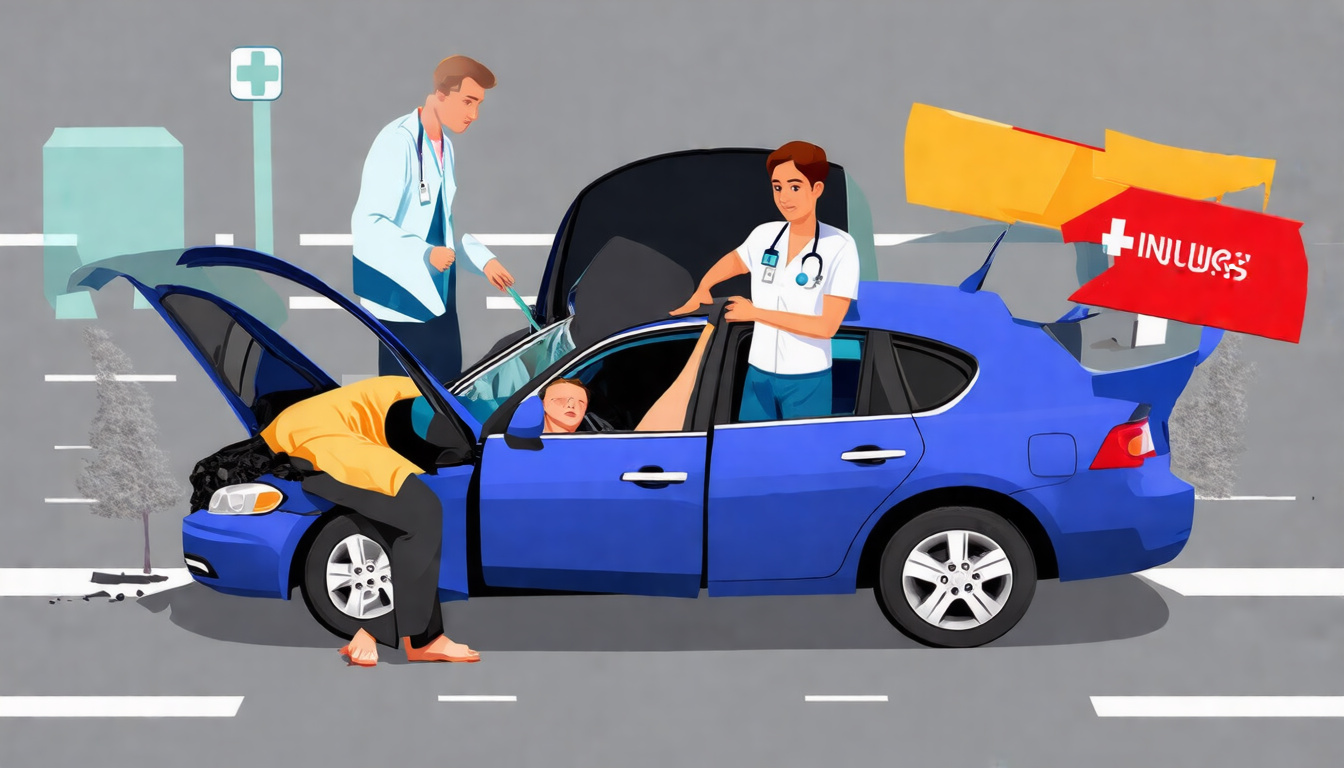When auto insurance matters, you need proper coverage when an accident occurs. You want protection that is clear and close-knit. One key type is personal injury protection (PIP). New drivers and seasoned ones alike gain from knowing PIP. It may save you time, money, and stress if trouble comes.
In this guide, we explain PIP in simple terms. We show how it works, what it covers, and why it is a key part of your auto policy.
What Is Personal Injury Protection?
PIP is a car insurance coverage. It pays for your medical costs after an accident. It may also pay for lost wages. In this plan, you and your passengers get protection—regardless of who is at fault. PIP works as a no-fault policy. It pays benefits without waiting to decide blame.
How Does Personal Injury Protection Work?
When injury strikes, PIP starts to help.
- It covers medical bills. Hospitals, surgeries, doctor visits, X-rays, and physical therapy fall under its care.
- If you cannot work, PIP may pay part of your lost wages.
- It may help with essential tasks, such as childcare or housekeeping.
- In tragic cases, it even covers funeral expenses.
PIP has limits. You must know your policy’s cap before a severe accident.
Where Is Personal Injury Protection Required?
Some states require PIP, while others do not. States with no-fault insurance need drivers to have it. For example, Florida, Michigan, and New York force drivers to carry PIP. Other states let you choose. Even where it is optional, adding it can be wise. Speak with your agent or check local rules.
What Does Personal Injury Protection Cover?
Coverage often depends on your insurer and state rules. Typically, PIP covers:
- Medical expenses like hospital and doctor bills
- Ambulance rides and emergency transport
- Rehabilitation and physical therapy
- Lost wages for time away from work
- Essential help, such as household chores
- Funeral costs if needed
Remember, PIP does not cover damage to your car or injuries to others outside your vehicle. Other policies handle those costs.
Benefits of Having Personal Injury Protection
PIP offers clear benefits:
- Fast access to medical funds. You do not wait for fault to be proven.
- Help with medical and related expenses so that your cash stays safe.
- Support for lost income if you cannot work.
- No-fault coverage, which reduces legal hassle.
The plan can be very useful if your health insurance is basic or if your job does not cover disability.
How Much Does Personal Injury Protection Cost?
PIP costs differ by location, insurer, limits, and driving history. On average, PIP adds about $50 to $150 a year to your premium. Though it costs extra, it offers protection when needed. Shop around for the best rate. Think about your driving, health coverage, and finances when choosing your coverage amount.
Tips for Choosing the Right Personal Injury Protection Coverage
Keep these tips in mind:
- Know your state’s PIP rules. Make sure your policy meets the minimum.
- Choose medical coverage that fits your needs.
- Check the percentage and duration of lost wage benefits.
- Look for extra help like childcare or funeral support if desired.
- Compare premiums and make sure coverage is complete.
Following these tips will help you avoid gaps in protection.
Personal Injury Protection vs. Health Insurance
Some wonder if PIP is necessary with health insurance. Health insurance pays many medical costs. However, it may not pay lost wages or extra services after a crash. PIP covers those gaps. Often, PIP works together with health coverage to give full support after an accident.

Frequently Asked Questions (FAQs)
Q1: Is personal injury protection the same as medical payments coverage?
A1: No. Medical payments cover only hospital bills. PIP covers lost wages and other needs as well.
Q2: How much personal injury protection should I have?
A2: Your needs depend on personal circumstances and state rules. It is wise to start with the state minimum and raise it if needed.
Q3: Does personal injury protection cover passengers?
A3: Yes. PIP protects you and your passengers no matter who causes the accident.
Conclusion: Why You Should Consider Personal Injury Protection Today
PIP plays a key role in a strong auto insurance plan. It covers medical costs, lost wages, and essential services after an accident. Accidents come with high costs and stress. PIP gives you clear financial help and peace of mind. Even if PIP is optional in your state, it is wise to consider its benefits. Connect with a trusted agent or compare quotes to find the best price.
Protect yourself and your loved ones on the road—invest in personal injury protection today, and be ready when life surprises you. For more information, visit the Insurance Information Institute here.
Author: Doyle Weaver, Attorney at Law
Home | Estate Planning | Personal Injury | Hill Country Lawyer | Terms of Service | Privacy Policy
© 2025 Digital Law Firm, P.C.
Disclaimer: The content provided in this blog is for educational and informational purposes only. It is not intended to constitute legal advice or establish an attorney-client relationship. The information presented does not address individual circumstances and should not be relied upon as a substitute for professional legal counsel. Always consult a qualified attorney for advice regarding your specific legal situation. The author and publisher are not liable for any actions taken based on the content of this blog.

Leave a Reply